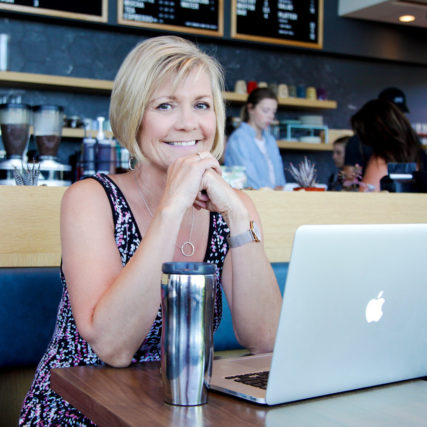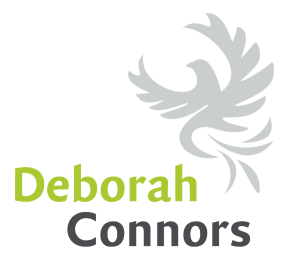
06 Jul The Next Stage in All of This is to Find Meaning
I’ve been quieter than usual lately. Not intentionally. Just finding myself stuck some days in all that is going on. Perhaps it has happened to you too. I wish there were a word to describe this condition of having countless ideas, but having difficulty channelling them into anything meaningful. It’s a sense of wrestling with a churning mind and it seems to describe what many of us are experiencing as we have worked at home through COVID-19, enclosed in our houses with our families, with most activities cancelled, interacting only now with our bubbles, and grappling with our feelings about everything that is unfolding in the world.
When I mentioned this to my teammate Erica the other day she said, “That’s exactly what’s been happening to me too!” It seems to be about dealing with the unknown. It is uncomfortable and maybe it is the grief that Scott Berinato describes in his article: “That Discomfort You’re Feeling Is Grief.”
It’s impossible to carry on with business as usual in a world where there is a Black Lives Matter Revolution happening and also a pandemic. But I have been paying attention, mindfully. Keeping up on the research and statistics of the pandemic. Feeling uplifted by how we have flattened the curve where I live but disheartened with the spread of the pandemic elsewhere. Paying attention to the BLM movement. Rooting for the positive changes that are being painstakingly made while feeling unsettled by the racism that still exists. Some days it is just plain depressing, like a strange, irritable companion that is now sitting with me.
It’s Grief
In his article, Berinato interviewed David Kessler, co-author of On Grief & Grieving: Finding the Meaning of Grief through the Five Stages of Loss. Kessler describes one stage of grief as being anticipatory grief where we get lost in the “what ifs” and try to process what is coming and how bad things could be. Kessler says, “With a virus, this kind of grief is so confusing for people. Our primitive mind knows something bad is happening, but you can’t see it. This breaks our sense of safety. We’re feeling that loss of safety…we’re grieving on a micro and macro level.”
I’d say the mounting pandemic, coupled now with the BLM movement has many of us grieving—alone—but on the same page, wondering what will come next? Kessler goes on to describe in the article how, with permission from the family of his co-author Kübler-Ross, he has added a 6th stage of grief: finding meaning.
He says it is imperative to acknowledge the grief you are feeling before you can manage it and find meaning in it. After grappling with this for months now I acknowledge that the ups and downs I’ve been feeling have been grief. But what is the meaning and the learning in all of this?
Finding Meaning
In regard to the pandemic, my response has been to listen to the evidence, observe the protocols, and to be grateful for the experts in BC who are leading us through this unnerving time. But it does not take away the grief that washes over me occasionally. I was driving down the road the other day and heard this song by Luke Combs, and suddenly found myself tearing up:
I miss my mom, I miss my dad
I miss the road, I miss my band
Givin’ hugs and shakin’ hands
It’s a mystery, I suppose
Just how long this thing goes
But there’ll be crowds and there’ll be shows
And there will be a light after dark
Someday when we aren’t six feet apart
Indeed, there will be light after dark. Until then, I will continue to respond as we’ve all been encouraged to do so by BC’s incredible provincial health officer, Dr. Bonnie Henry, whose words have become a mantra for many: Be kind. Be calm. Be safe.
The BLM movement is a different story. It’s not novel–not like the pandemic. The issue of racial inequality has been around for centuries, and continues to crop up in shocking ways. We read alarming statistics regularly, like those from the Ontario Human Rights Commission that studied seven years of data to find that black Toronto residents are “20 times more likely to be shot dead by the police than white residents.”
The BLM movement is forcing leaders to step up and take a stand on the issue of equality. There is mounting recognition that we need to do better as a society, and the workplace is no exception. Our employees and our clients need to know that our organizations stand for equality and will not stand for racism.
Taking Action
We may not know where to start or what to say, but leaders generally have a platform to use. Take Frank Sinatra, for example. Back in the 40’s, he was a great advocate for people of colour. Author Laura S. Washington says:
“On tour, Sinatra refused to play at clubs unless blacks were permitted to attend. He would not sleep in a hotel that banned his black colleagues. There’s a famous story about how he escorted Lena Horne to the Stork Club, a whites-only hot spot, and insisted they admit her. After much hand-wringing, they did… In 1946, his documentary on race relations won a special Academy Award.”
He made a point, and set an example for others. Sinatra is famously quoted as saying “You can’t hate and live a wholesome life. Prejudice and good citizenship just don’t go together.”
Racism, as we call it now, and healthy, thriving organizations don’t go together either.
My life’s work revolves around changing the work conversation by teaching leaders how to radically shift cultures so that people can flourish. Transforming workplace culture means transforming any racial injustices that are felt by the people within our organizations. Racism should not have a leg to stand on.
In grappling with what to say about this issue, as white people do, I realize that although I don’t know what it feels like to be a person of colour, just being a woman means that I know what unequal feels like. Women are underrepresented in corporate board rooms and the fact that we make less money for the same jobs is still mind boggling. Historically, our workplaces and governments have been filled with old, white men. In some obvious places, this has not changed. And yet, we see shining examples of extraordinary female leaders and exceptional black leaders who are leading with brilliance, compassion and kindness, and changing the status quo. Despite this, people of colour, particularly women of colour, are not represented in the workplace in the way they should be.
Maya Angelou said, “We all should know that diversity makes for a rich tapestry, and we must understand that all the threads of the tapestry are equal in value no matter what their color.”
Our workplaces, from boardroom to front-line, need to reflect the rich tapestry of our society—different cultures, colours, genders, strengths, education, ideas and family dynamics. A tapestry woven in a single colour, with no depth or detail or dynamic does not have the same appeal.
Let’s start to pay attention. The next time you become aware of something that is not inclusive or fair in your workplace, speak up. At your next meeting, if someone says something inappropriate or racist, take the opportunity to point it out – kindly, calmly. Have that conversation.
Given the passionate discussions that today’s issues are bringing up in organizations around the world we thought this would be an ideal time to talk about who we are at Well-Advised Consulting, what we stand for, and what we do.
Who We Are & What We Do
Well-Advised Consulting Inc. was spearheaded by Deborah Connors, an organizational culture specialist, and is run from her hometown on beautiful Vancouver Island, BC, where she lives with her family. She teaches leaders to radically shift culture so that people can flourish. Her organizational services include consulting, speaking, writing and facilitating workshops across Canada and abroad, including online courses and presentations. For over 17 years, Deborah led the Health Work & Wellness Conference in Canada (which she founded, and has since been rebranded to The Better Workplace Conference) – a powerful initiative that attracted a community of like-minded individuals, and created a whole generation of organizational health professionals who are changing workplaces around the globe.

Deborah Connors – Storyteller, speaker, leadership expert & author

Erica Baird – Writer, wordsmith, cheerful correspondent & admin guru
Deborah was joined by Erica Baird in 2019. Erica worked with Deb previously on the Health Work & Wellness Conference in 2008 as an event coordinator. Since then, she added an Education degree to her Political Science one and then lived and worked with her family in Thailand, Bangladesh, and Germany. Erica loves to be outside in the wild (preferably running), feels like travelling and adventures are a remarkable thing, sips tea an awful lot, and enjoys rare moments of quiet to write, read and just plain old think.
We have a group of regular contractors behind the scenes that help us with design, website and social media, and we have speakers join us regularly as guests on our online courses. We are currently looking for a Communications & Marketing Advisor. (If this is your expertise and you’re interested please get in touch!)
At Well-Advised Consulting we value:
- Evidence. Any practices we teach or decisions we make are evidence-based, backed by solid research.
- Positive Deviance. Deviating from the norm in positive ways for positive reasons.
- Reinvention. We suggest three mindset shifts to positively deviate your business practices—from downstream to upstream, from a program approach to a cultural approach, and from conventional management to transformational leadership.
- Equality. It is time for women and people of colour to have the respect they deserve.
- Curiosity. We will not always have the answers, but by getting curious and asking generative questions we will find the practices that positively deviate from the usual to reinvent work positively.
We are keeping the conversation about flourishing workplaces going by continually reimagining our work. We’ve been teaching our courses online for over 4 years now and have moved everything else online too.
Coming Up
- The 3 R’s for Teams During COVID-19: RESILIENCE, REINVENTION & REFLEXIVITY – call us now to book Deborah to facilitate one, or all three of these workshops with your team over the summer.
- New course: We are launching a new 10-module self-directed course (an updated and vastly expanded version of the 8-Weeks To A Better Place To Work) that you will be able to work through at your own pace with the addition of two Zoom calls with Deborah throughout your course journey. Starts in September.
- Facilitator training: We are launching a facilitators training for leaders who want to offer the above course live to their clients or employees. Starts in October.
- Conversations Worth Having—online course to be offered again in October.
Follow this blog for frequent ideas on creating your “better place to work.”
Book Deborah to speak at your online event or to your virtual team.
Purchase her book: A Better Place To Work: Daily Practices That Transform Culture. A perfect book for your next book club! Reduced prices are available for bulk orders.
Featured Photograph by Alexandr Ivanov from Pixabay

